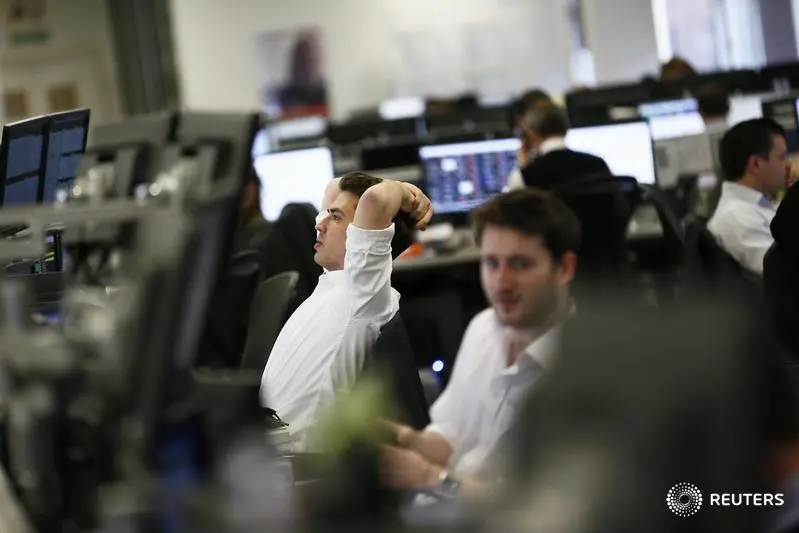PHOTO
LONDON - World equity markets touched fresh record highs with optimism about a U.S. rate cut underpinning sentiment ahead of key jobs numbers later on Friday, while the euro hit a three-week high ahead of French elections this weekend.
Sterling and UK stocks were higher as Britain's Labour Party was set for a landslide poll victory after 14 years of Conservative rule.
The market focus in Europe was quickly shifting from the UK election - where Thursday's vote outcome was widely anticipated - to Sunday's second-round election in France. French stocks have recovered ground after they were sold off sharply following the surprise election announcement last month. The euro has benefited from renewed U.S. rate-cut speculation.
Trading was subdued a day after the U.S. July 4 holiday but is expected to pick up after the release of the June U.S. non-farm payrolls report.
"We're in the summer holiday sweet spot for markets, with investors focused on inflation coming down to target in big economies," said Guy Miller, chief market strategist at Zurich Insurance Group.
"That, in combination with weaker U.S. data, is positive for the inflation outlook and that means rate cuts are back on the cards again," he said.
MSCI's world stock index touched a fresh record high. It remained near there and was last up 0.07%. European shares rallied 0.3%, while Japan's Nikkei and broader Topix also logged record levels.
Trade in U.S. stock futures suggested a slightly positive open for Wall Street .
Following the UK election result, London's FTSE 100 index rose 0.38% at the open. The yield on 10-year British government bonds or gilts, dropped 3 basis points to 4.17%, largely in line with other European markets, and sterling inched up to around $1.2779.
"A landslide victory provides the sort of clarity and stability that equity markets need in an increasingly volatile world," said Ben Ritchie, head of developed market equities at Abrdn.
JOBS IN FOCUS
Nonfarm payrolls likely increased by 190,000 jobs last month after surging by 272,000 in May, according to a Reuters survey of economists. Employment gains have averaged about 230,000 jobs per month over the past 12 months.
Zurich's Miller noted a weakening in recent employment data and said a softer-than-expected payrolls number would support the case for a U.S. rate cut in September.
U.S. Treasury yields were little changed in early London trade, with two-year yields trading around 4.69% and benchmark 10-year yields up marginally at 4.36%.
In currency markets, the euro rose to $1.0825 as polls point to France's far right National Party falling short of an absolute majority at Sunday's parliamentary election runoff.
"If the polls eventually prove accurate, this would mean the more extreme policies of fiscal expansion and immigration curbs are unlikely to pass," said MUFG analyst Michael Wan.
The dollar was down around 0.35% at 160.75 yen. The Australian dollar notched up a six-month high of $0.6738 as yield spreads swung in its favour, underpinned by wagers that the next move in Aussie rates might be up given inflation is proving stubborn.
Bitcoin was set for its biggest weekly fall in more than a year on worries over the likely dumping of tokens from defunct Japanese exchange Mt. Gox and further selling by leveraged players after the cryptocurrency's strong run.
It slid as much as 8% on the day to $53,523, its lowest since late February.
Gold rose 0.3% to $2,363.25 per ounce and was set for a second straight weekly gain, while oil prices were poised for a fourth straight week of gains.
Brent crude futures held above $87 a barrel following a bigger-than-expected drop in U.S. crude stocks, which suggest firm demand as the U.S. summer driving season gets under way.
(Reporting by Dhara Ranasinghe; Additional reporting by Wayne Cole in Sydney; Editing by Edwina Gibbs)




















